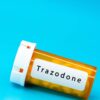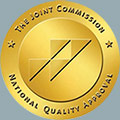Heroin is a highly addictive, illegal, rapidly acting opiate that is derived from morphine.
Morphine is synthesized from the seeds of the opium poppy plant, which is why heroin is classified as opiate. Heroin is categorized as a Schedule I Controlled Substance by the United States Drug Enforcement Administration (DEA), which is defined as a substance “with no currently accepted medical use and a high potential for abuse.” Heroin works by attaching itself to opioid receptors in one’s body, which affect neurotransmitters and one’s pleasure and reward perceptions. Heroin also affects one’s ability to control heart rate, breathing, and sleeping.
The National Institute on Drug Abuse assert that habitual use of heroin can lead to both short- and long-term changes in one’s brain. The National Institute on Drug Abuse addresses research findings that indicate a loss of the brain’s white matter in associating with heroin use. In 2019, there were a total of 4,477 drug overdose deaths in youth; 3,391 of them were due to heroin overdose. Due to its highly addictive qualities, any person that uses heroin repeatedly, is at risk for developing a physical and psychological addiction to heroin.
Signs and Symptoms
Heroin can be abused in different ways such as intravenously (injected), inhaled (snorted), and/ or smoked. The method of ingestions does not affect the speed at which heroin crosses the blood-brain barrier. Heroin has a particularly short half-life, meaning the length of time the substance will remain in one’s system until the concentration in one’s blood has been reduced by half, of only thirty minutes. Commonly reported examples that may be indicative of heroin abuse could include, but are not limited to, the following, provided by the Mayo Clinic:
- Euphoria
- Depression
- Aggression
- Irritability
- Delusions
- Paranoia
- Hallucinations
- Agitation
- Shortness of breath
- Respiratory infections
- Anxiety
- Severe mood swings
- Weight loss
- Diminished personal hygiene practices
- Increased sleep
- Decreased motivation
- Slurred speech
- Dry mouth
- Constricted pupils
The severity of symptoms will depend on several contributing factors (e.g., an individual’s personal health history, the length of time the individual abused heroin, the frequency of use, the amount abused, if the individual mixed heroin with any other substances, etc.). If left untreated, habitual heroin abuse can exponentially increase one’s risk of life-threatening overdose.
For Information and Support
Contemplating detox can be a very challenging time. Before any individual can begin to work on the underlying issues contributing to their substance abuse problem, they must be separated from the substances in their systems. If you are concerned for yourself or a loved one regarding substance abuse, and/ or addiction we recommend reaching out for help as soon as possible. The earlier you seek support, the sooner you and your loved ones can return to leading happy, healthy, and fulfilling lives. Sherwood Detox offers a stand-alone detox program. For additional information on detox, please do not hesitate to contact us at: 818-626-9959 or feel free to email us anytime. One of our trusted counselors is available to talk and discuss how we can best support you on your journey.









